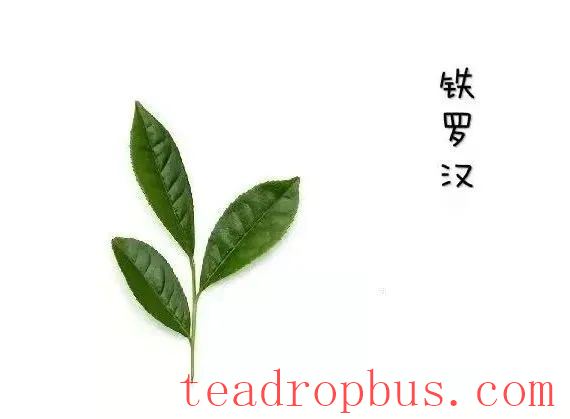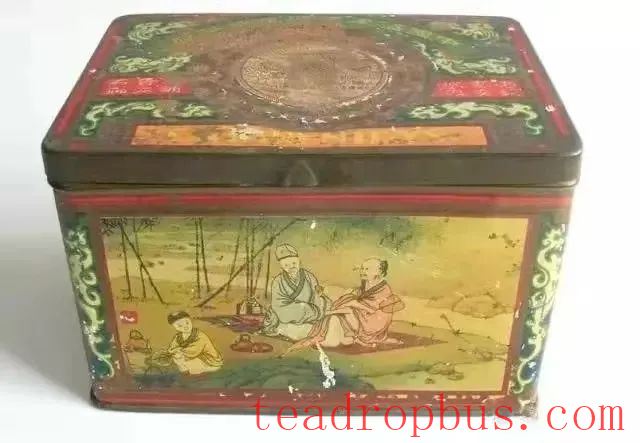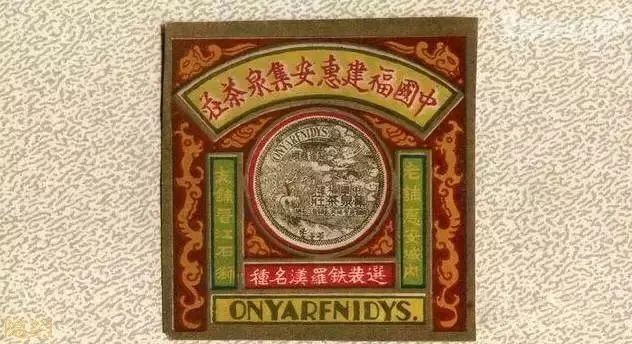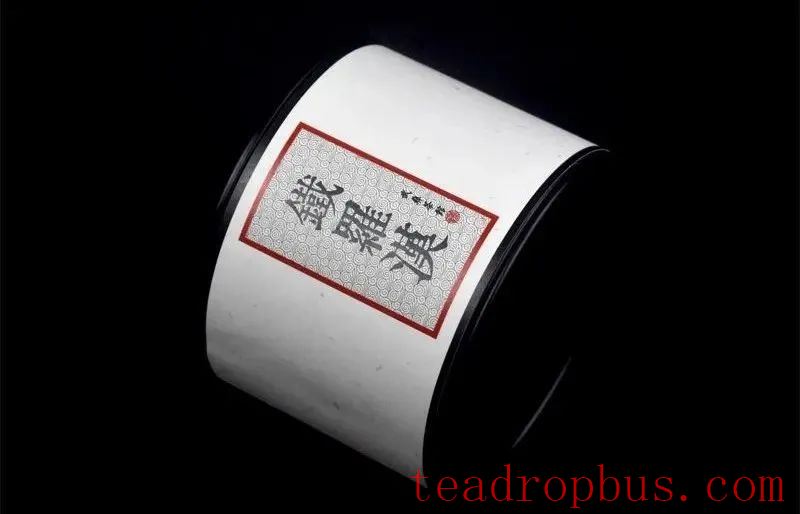Tie Luohan is one of the four famous clonal varieties of Wuyi Rock Tea, with the original mother tree rumored to be located in Inner Ghost Cave. According to “Records of Fujian Products,” written by Guo Baocang during the Qing dynasty: Tie Luohan was a tree name from the Song dynasty. Therefore, the name Tie Luohan predates Da Hongpao.
In 1943, Lin Fuchuan recorded the names of tea trees in Wuyi Mountain's Huizhuan Rock area, and the first on the list was Tie Luohan.

Tie Luohan is asexually propagated, a shrub type, medium leaf category, mid-season variety, with long oval-shaped leaves that are dark green in color. The leaf surface is slightly raised, the leaves are thick, and the teeth are shallow, dense, and slightly blunt. Tie Luohan tea plants have strong reproductive capacity and produce a dense growth of shoots. They have good tenderness retention and strong resistance to cold and drought. They also have strong propagation through cuttings with a very high survival rate. The harvest period is at the end of April. When made into Oolong Tea, it has excellent quality with pronounced rock aroma.
The Legend of Tie Luohan
In Wuyi Mountain's Huizhuan Temple, there was a monk named Jihui who was skilled in tea-making techniques. The tea he harvested and processed had a fragrant aroma and a rich, sweet taste, which refreshed those who drank it, making it popular among people living around the temple. He was dark-skinned, robust, and large in stature, resembling a Luohan (a Buddhist arhat), so the locals called him “Tie Luohan.”
One day, he discovered a tea tree in the crevice of a rock wall in Fengkeng (Ghost Cave). The tree had a tall, upright canopy, sturdy branches with a gray-yellow hue, soft, furry buds, and emitted an enticing fresh fragrance. He picked some young leaves, brought them back to the temple, and processed them into rock tea, inviting his neighbors to sample it. When asked what the tea was called, he could not answer and instead told them the story of how he found it. After hearing this, everyone agreed that since the tea tree was discovered by him and the tea was made by him, it should be named “Tie Luohan.”

Jiqquan Tea Shop of Hui'an in the 25th Year of the Republic of China (1936)
Fragrance from within the door, fragrance outside the door; Long-established brand Longque Tie Luohan.
In 1781 (the 46th year of the Qianlong era), Shi Dacheng opened the Jiqquan Tea Store in Xiasu Street, Hui'an city. He sent his grandson Shi Jihou to Wuyi Mountain to select Wuyi tea and later purchased the Liuguanzhai tea factory. Around the 10th year of the Republic of China (1921), Jiqquan was experiencing a prosperous period, with annual turnover increasing from 30,000 to 120,000 silver dollars, with Tie Luohan accounting for 30%. In 1924, they purchased the Xi Factory in Huizhuan Rock for 13,000 silver dollars. This factory was famous for its high-quality and high-yield teas in the Three Gullies of Wuyi Mountain. Records from the early years of the Republic of China show that Jiqquan Tea Garden operated with multiple types of commercial teas: Tie Luohan sold for 48 silver dollars per catty, Shuixian for 16 silver dollars per catty, Xueli for six silver dollars and forty cents per catty, Xuehua for three silver dollars and twenty cents per catty, Yuming for one silver dollar and sixty cents per catty, Meizhan for eighty cents per catty, and Lanxin for sixty-four cents per catty. Among these, Tie Luohan was the most valuable.

Packaging of Tie Luohan by Jiqquan Tea Shop of Hui'an
According to Bao Shutu, who was responsible for organizing supplies in Wuyi Mountain, he supervised the production of tea from the Liuguanzhai and Huizhuan West factories owned by Jiqquan, as well as procured tea through various channels from Tianxin Rock, Tianjing Rock, Tianyou Rock, Leishi Rock, Mantuo Rock, Xiabin Rock, Zhulian Rock, Baozhi Rock, and Qingyuan Rock in Wuyi Mountain. Additionally, before being exclusively supplied to Zhang Quanyuan, Zhukuo Rock, Bishi Rock, Mituo Rock, and Manyun Rock also supplied tea to Jiqquan on a long-term basis. Around the 10th year of the Republic of China (1921), the store shipped out between 700 and 1200 boxes of tea from Wuyi Mountain each year. The sales of their Tie Luohan were the best, accounting for over 70% of total sales, carefully blended from premium Wuyi rock teas.
In 1927, the “Hui'an County Chamber of Commerce” was renamed the “Hui'an Merchants' Association.” It later reverted to the “Hui'an County Chamber of Commerce,” managed by Shi Zhiping, the manager of Jiqquan Tea Garden, among others. In 1931, unscrupulous merchants took advantage of Jiqquan Tea Garden's good reputation and sold counterfeit “Tie Luohan” in the market. Jiqquan Tea Garden promptly registered the “Longque” trademark with the then Nationalist government, which remains in use to this day. In 1956, the business underwent public-private partnership. In 2006, Longque was recognized as one of the first batch of “China Time-honored Brands” by the Ministry of Commerce. In 2013, the production technique of Longque Tie Luohan was listed as a municipal-level intangible cultural heritage.

Sun-Dried Tie Luohan from Liuguanzhai Tea Factory
Zhou Lianggong's “Fujian Tea Ode” describes Wuyi tea: “Although pre-rain tea is good, it is too fresh; don't drink it until the fire has subsided. Stored properly, its deep red color triples its value, and every household boasts of aged tea.” The Wuyi famous clone – Tie Luohan is known for its rich flavor, distant aroma, medicinal herb scent in aged tea, and unique taste. For several hundred years, it has remained popular in Wuyi rock tea. It attracts many seasoned tea enthusiasts. In Fuzhou, southern Fujian, Taiwan, and Southeast Asia, there are many fans of Tie Luohan. In earlier years, it was especially loved by overseas Chinese, earning the title of “homeland divine tea” and “treasure of Oolong tea.”